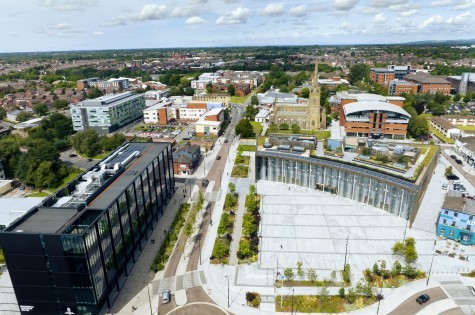Burnley-based Rapid IT has reduced waste, made more effective use of its floor space and increased productivity with help from AMRC.
The company specialises in IT asset disposal, data destruction and is a hardware recycling specialist, but recent growth had been limited after it had filled its existing floor space.
The company approached AMRC which, through its RADAR programme, offers a range of fully-funded manufacturing support projects and collaboration opportunities designed to boost competitiveness and productivity for Lancashire’s SME manufacturing community.
Iain Martin, senior engagement manager at AMRC North West, part of the High Value Manufacturing (HVM)Catapult, said the automation team worked with Rapid IT over the course of two European Regional Development Fund (ERDF) funded projects.
“Our project team helped to analyse and map out Rapid IT’s processes which helped to identify opportunities to smooth out their production flow and increase productivity,” said Iain. “They also produced a comprehensive set of process flow charts, intuitively laid out and can be modified in the future as Rapid IT grows and can help support process improvements and the understanding of key decisions made.
“This solution led onto the second support assist, which involved producing a 2D and 3D model of the premises and a virtual fly through of its workshop, enabling the business to optimise space usage, plan equipment positioning and future equipment acquisition, as well as being able to increase the efficiency of product movement through each process stage.”
Jack Banister, co-founder and managing director of Rapid IT, said: "It has made us realise how complex our company is and gave us an opportunity to step back and think in greater detail about our processes and has helped us become more critical of our operations.
"The warehouse design has been beneficial for our cash flow, as we are now able to process IT assets for resale quicker, enabling a faster turnaround to be able to replenish our funds and we’ve also seen a reduction in our carbon footprint.”
Enjoyed this? Read more from Tim Aldred




















